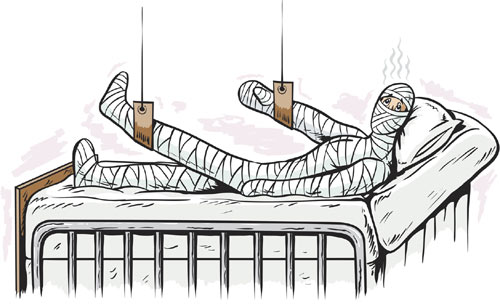 The Notary Hotline receives hundreds of calls daily from Notaries nationwide who find themselves in challenging situations. To boost your knowledge of Notary standards of practice, we’ve created a series of scenarios based on actual situations and ask a simple question: What would you do?
The Notary Hotline receives hundreds of calls daily from Notaries nationwide who find themselves in challenging situations. To boost your knowledge of Notary standards of practice, we’ve created a series of scenarios based on actual situations and ask a simple question: What would you do?
Imagine that you’ve been called to someone’s home to perform a notarization. When you arrive, you find that the signer is suffering from a medical condition that has immobilized him, so he is unable to speak, write his name or even make a mark such as ‘X’ on his own. The only type of communication he can make is to nod his head “yes” or “no.” However, his family tells you that he needs to have his signature on some important documents notarized.
What would you do?
Given that the signer is completely unable to write or speak, would you proceed with the notarization? Do you feel that being able to nod his head is sufficient for you to communicate with him directly and establish his willingness to sign and awareness? How would you handle this situation? Would you refuse the notarization, or choose another option to proceed?
To participate in this week’s “What Would You Do?” scenario, share your answers in the comments section below. We may mention your response in next week’s Bulletin, when we offer the best possible answer(s) to this notarial challenge.
David Thun is the Assistant Managing Editor with the National Notary Association.
Related Articles:
Notary Basics: Determining a signer’s willingness
5 tips when notarizing for medical patients